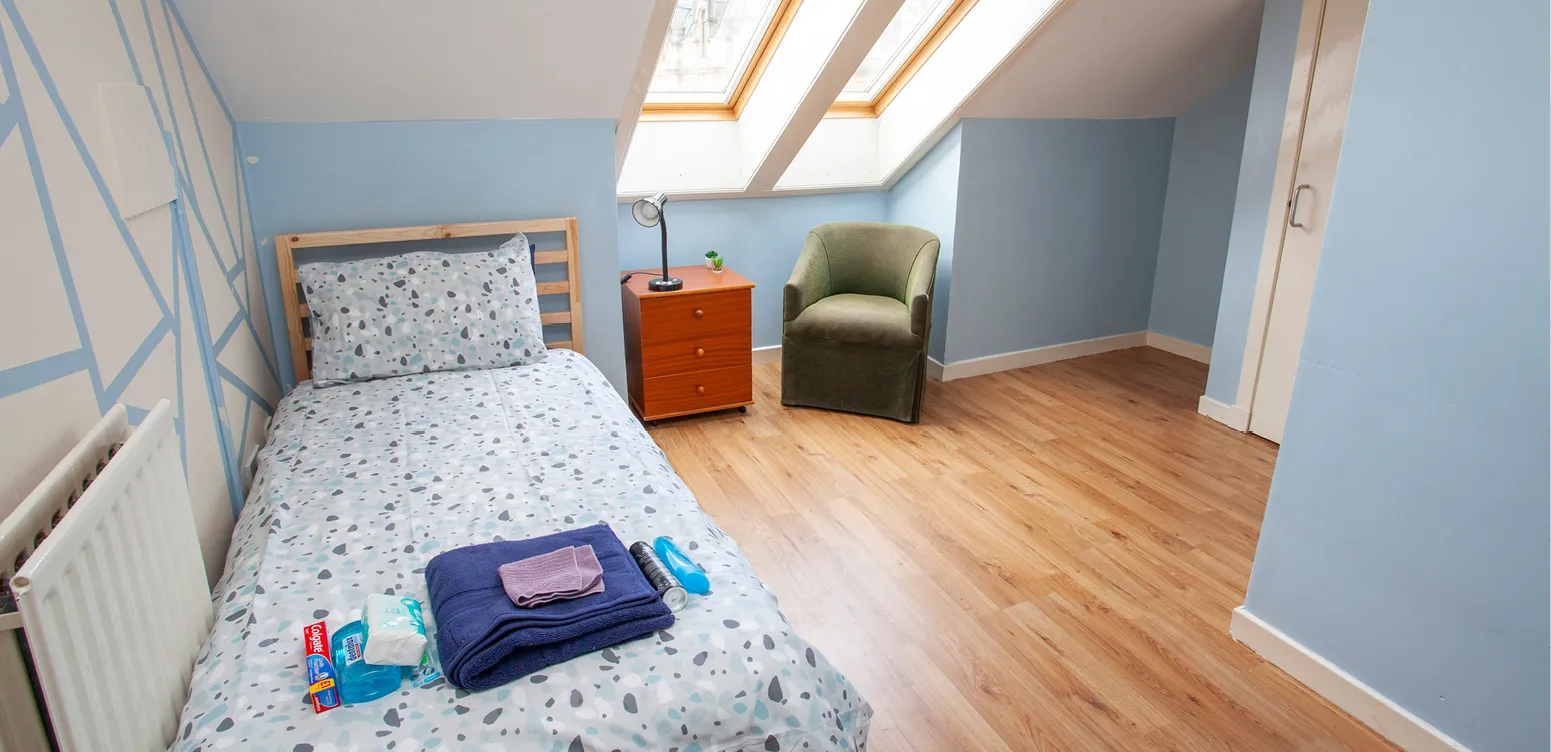Learn how your organisation could help Glasgow Night Shelter
By Ewain Black, Project Development, Glasgow Night Shelter.
By Ewain Black, Project Development, Glasgow Night Shelter.

Glasgow Night Shelter (GNS) is driving a better future for one of the most overlooked groups of people in Scotland. As the organisation marks its 10th anniversary, we also celebrate a bold period of transformation — made possible through a collaborative partnership with Glasgow’s Queens Cross Housing Association and Simon Community Scotland.
GNS provides emergency accommodation to people who become destitute during the asylum process and have no recourse to public funds. This means they can’t receive most benefits or mainstream homelessness support, and they have no right to work to sustain themselves. It is estimated that this affects around 200–500 people in Scotland at any one time, with at least 150 of those people in the Glasgow area.
Of course, this community shows tremendous strength; many have experienced difficult journeys and demonstrate remarkable resilience as they persevere within a system that penalises them when they most need help. The people who stay with Glasgow Night Shelter have often left behind professional jobs and are highly educated; however, a lack of income or access to accommodation, language barriers and a lack of local knowledge puts them in an extremely vulnerable position, forced to make survival decisions. Priorities shift towards taking care of basic essentials such as food, hygiene and shelter and this also makes it difficult to re-engage with the asylum process and access the rights most are entitled to.
GNS has a human rights approach to accommodation and believes that all people living in Scotland should be able to access safe, dignified and comfortable housing. We all know that a home is a vital foundation for all of us, and for destitute asylum seekers, it offers a realistic opportunity to re-engage with services and access their statutory rights. It’s also a safe place to make decisions about their future.
With Queens Cross Housing Association, GNS has been able to move from a building in which 25 men had to share one dormitory room, with few toilets and no showers, to a building where our community has the thinking space to make decisions and dignity that come with having your own en suite room. Thanks to partners and volunteers, we can now deliver our unique human-rights, trauma-informed model. Everyone who stays has their own safe space; there are facilities (and supplies) to make food independently, as well as a community kitchen offering three meals a day. We provide in-house casework in partnership with Scottish Refugee Council and our asylum-experienced Participation Manager ensures that further development and delivery of GNS is decided by those who stay.
We are working with the renowned I-Sphere Institute at Heriot Watt University to evaluate the effectiveness of providing this type of holistic support. GNS is also a key member of the Everyone Home Collective, working together to remove destitution from the asylum process by 2025.
One of the largest barriers facing this essential work is a lack of appropriate emergency accommodation. GNS is able to provide emergency accommodation to 17 people at any one time and has a waiting list for our services. Since August 2020, 53 people have stayed with us, on average, for two months before, in most cases, moving back to Home Office accommodation and asylum support. And we have a waiting list!
Building on the success of our partnership with QCHA, we are really interested in talking to other housing associations about the possibility of collaboration. We can tell you more about how it works practically and financially from all partner perspectives. We’d love to work together to achieve the things we all believe in – particularly dignity and safety for people at an extremely difficult and potentially dangerous point in their lives. Please email ewain@glasgownightshelter.org if you'd like to discuss this.
'I liked everything about GNS starting from the accommodation to food and so much more, hard to describe what it has meant to me” (M December 2020)